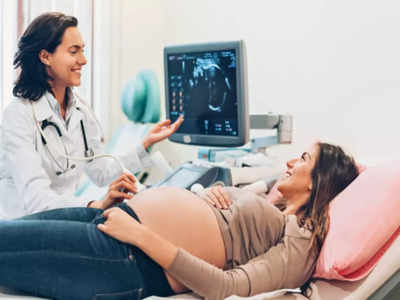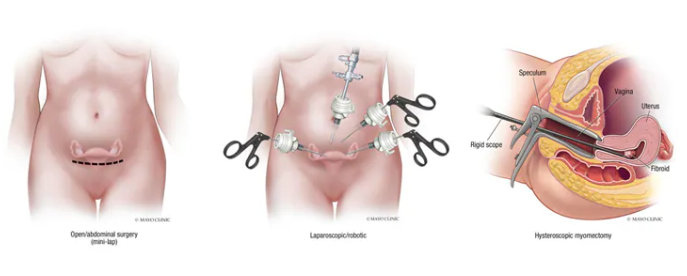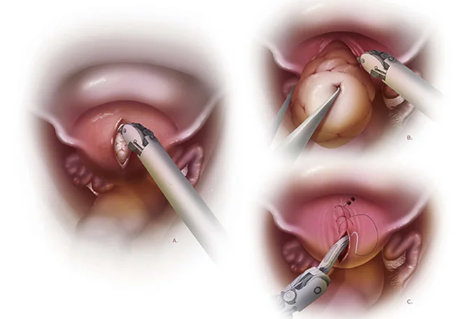Overview
Myomectomy, a surgical procedure to remove uterine fibroids, is generally considered safe and possible for many women. Myomectomy can improve fertility prospects, especially for those whose fibroids were previously causing infertility or pregnancy complications. The size and location of your fibroid and the type of myomectomy you had can all impact your chances of getting pregnant. While the pregnancy after myomectomy success rate is high, it's worth noting that approximately 25% of women who have had a myomectomy will experience recurrent fibroid growth. It's also important to remember that the road to conception after a myomectomy may take a bit longer than for those who haven't had surgery. The risk of miscarriage is higher for women who have had a myomectomy. And with proper care and monitoring, many women have healthy pregnancies.

If you're considering trying for a baby after a myomectomy, book an appointment with the best gynecologist in India for tailored guidance and support.
Different types of myomectomy
Myomectomy is a surgical procedure to remove a fibroid from the uterus. There are different types of myomectomy. Depending on the size, location, and number of fibroids, as well as the woman's health. Here are a few of the most common types:

- Open Myomectomy
- Laparoscopic Myomectomy
- Hysteroscopic Myomectomy
- Robotic Myomectomy
Are you wondering if pregnancy after a myomectomy is possible? What are the chances of pregnancy after myomectomy? Learn about the factors that affect one.
What factors affect pregnancy after myomectomy?
Several factors can affect a woman's ability to become pregnant after a myomectomy, which include:
- Size and location of the fibroid: Large and deeply embedded fibroids are more likely to cause fertility problems. They require a more complex surgical procedure for removal.
- Type of myomectomy performed: A laparoscopic myomectomy is a minimally invasive procedure. It may be less likely to cause damage to the uterus and surrounding tissue. It increases the chances of pregnancy.
- Number of fibroids removed: More fibroids can increase the chance of complications and lower the likelihood of pregnancy success.
- Age of the woman: A woman's age can impact her ability to conceive after a myomectomy.
You can check our blog if anyone you know is considering myomectomy in her 40s.
The extent of scarring caused by the surgery: A myomectomy may cause scarring in the uterus, making it more difficult for a fertilized egg to implant and grow.
Women's health: Women with other medical conditions, such as diabetes, hypertension, or autoimmune disorders, may have difficulty getting pregnant after a myomectomy.
Success Rate of Pregnancy after Myomectomy

The success rate of pregnancy after a myomectomy depends on several factors. It includes the size and location of the fibroids, the type of myomectomy performed, and the patient's health. While pregnancy after a myomectomy is possible, the risk of recurrent fibroid growth and complications is higher than in women without a myomectomy. Also, there may be a higher risk of miscarriage after a myomectomy. However, many women can have healthy pregnancies with proper care and monitoring.
- Generally, pregnancy rates after a myomectomy range from 60-90%, with most studies showing success rates of around 75%.
- Women who undergo laparoscopic myomectomy (with or without robotic assistance) have good pregnancy outcomes within about a year of surgery.
- Retrospective studies indicate that the conception rate following myomectomy ranges from 25% to 77%.
Yes, you read that right!
If you wish to have a successful pregnancy after fibroid removal, then keep reading further.
Tips to increase chances of successful pregnancy after myomectomy
If you're considering trying for a baby after a myomectomy, there are several steps you can take to have a successful pregnancy after myomectomy.
- Follow Post-Surgery Instructions: Adhere to your doctor's guidelines for recovery, including rest and activity restrictions.
- Allow Healing Time: Wait the recommended period (usually 3-6 months) before trying to conceive to ensure your uterus has fully healed.
- Healthy Diet: Eat a balanced diet rich in vitamins and minerals to support overall reproductive health.
- Regular Exercise: Engage in moderate exercise to maintain a healthy weight and improve blood flow.
- Manage Stress: Practice stress-reducing techniques like yoga, meditation, or deep-breathing exercises.
- Quit Smoking: Avoid smoking and limit alcohol consumption to enhance fertility.
- Monitor Ovulation: Use ovulation predictor kits or track your menstrual cycle to identify your most fertile days.
- Take Prenatal Vitamins: Start taking prenatal vitamins, especially folic acid, before trying to conceive.
- Regular Medical Check-ups: Keep up with follow-up appointments to monitor your reproductive health.
- Consult a Fertility Specialist: If you have difficulties conceiving, seek advice from a fertility specialist for tailored guidance and possible treatments.
Every woman's experience is different, and it's best to consult with your gynecologist for personalized advice and guidance.
How long should one wait to get pregnant after myomectomy
It is generally recommended to wait at least six months before attempting to conceive after a myomectomy. This allows time for the uterus to heal and recover from the surgery. The healing process can vary for each individual, so it's best to consult your gynecologist for personalized advice and guidance.
During this waiting period, it is essential to focus on your health, such as having a healthy lifestyle by maintaining a healthy weight, eating a balanced diet, and getting regular exercise. It is also essential to manage any chronic health conditions and stop smoking or limit alcohol consumption, which can lead to more severe complications, such as gallstones, liver damage, etc.
It's also important to remember that even after the waiting period, pregnancy may take longer to achieve. You may also need more frequent check-ups during your pregnancy and have to be monitored more closely to ensure the well-being of both mother and baby.
Is pregnancy after myomectomy high risk?

Pregnancy after a myomectomy can be considered a high-risk pregnancy compared to those without a myomectomy, but with proper care, many women have successful pregnancies. Key considerations include:
- Uterine Scar: The surgical scar on the uterus may increase the risk of uterine rupture, particularly during labor.
- Close Monitoring: Regular check-ups with your healthcare provider are essential to monitor the health of both mother and baby.
- Cesarean Delivery: Many doctors recommend a cesarean section to minimize the risk of uterine rupture during delivery.
- Healing Time: It is crucial to allow sufficient healing time (typically 3-6 months) before attempting to conceive.
According to Ms. Brooke Davis, who is a Women’s Health RN, Holistic Nutritionist, Certified Lactation Counselor, and Certified Women’s Health Coach: "Women with large or multiple fibroids may be advised to have a cesarean delivery to avoid the risk of obstructed labor or other complications. Women who have undergone an open/abdominal Myomectomy may also be advised to have a cesarean due to the possible risk of uterine rupture from the contractions during labor."
What is the impact of myomectomy on delivery?

Myomectomy can impact delivery, depending on the location and size of the removed fibroid and the woman's overall health. Here are a few things to consider:
However, larger fibroids that are in the lower uterus near the cervix could potentially block the passage of the baby and require a cesarean delivery.
"Myomectomy can impact delivery by increasing the likelihood of requiring a cesarean section. The presence of a uterine scar raises concerns about the risk of rupture during vaginal delivery. Therefore, careful monitoring and planning with your healthcare provider are essential to ensure safe delivery." said Dr. Swapna Chekuri, a Gynecologist in Hyderabad.
What to Expect During Pregnancy After Myomectomy?
Pregnancy after a myomectomy can be a different experience for each woman, but there are some things that you can expect during your pregnancy. and
| Your healthcare provider will closely monitor your pregnancy and may recommend additional testing or scans to ensure the well-being of both mother and baby. |
| A woman who has had a myomectomy may have a slightly higher risk of complications during pregnancy, such as recurrent fibroid growth or bleeding. |
| The risk of miscarriage is slightly higher for women who have had a myomectomy, but with proper care and monitoring, many women go on to have healthy pregnancies. |
| You may need frequent check-ups during your pregnancy, and you may have to be monitored more closely to ensure the well-being of both mother and baby. |
| Depending on the location and size of the removed fibroids and overall health, vaginal delivery may be possible, or a cesarean section (C-section) may be recommended. |
| After delivery, you may need to be closely monitored for any complications and may require more frequent check-ups. |
Conclusion
We can conclude by saying that myomectomy is a common procedure for women with uterine fibroids. While it can reduce fertility, there are steps you can take to increase your chances of conceiving after myomectomy.
From pre-conception care to lifestyle changes and fertility treatments, it is possible to maximize your chances of conceiving after a myomectomy.
Take the first step to your dream parenthood. Get in touch with us for your treatment.






